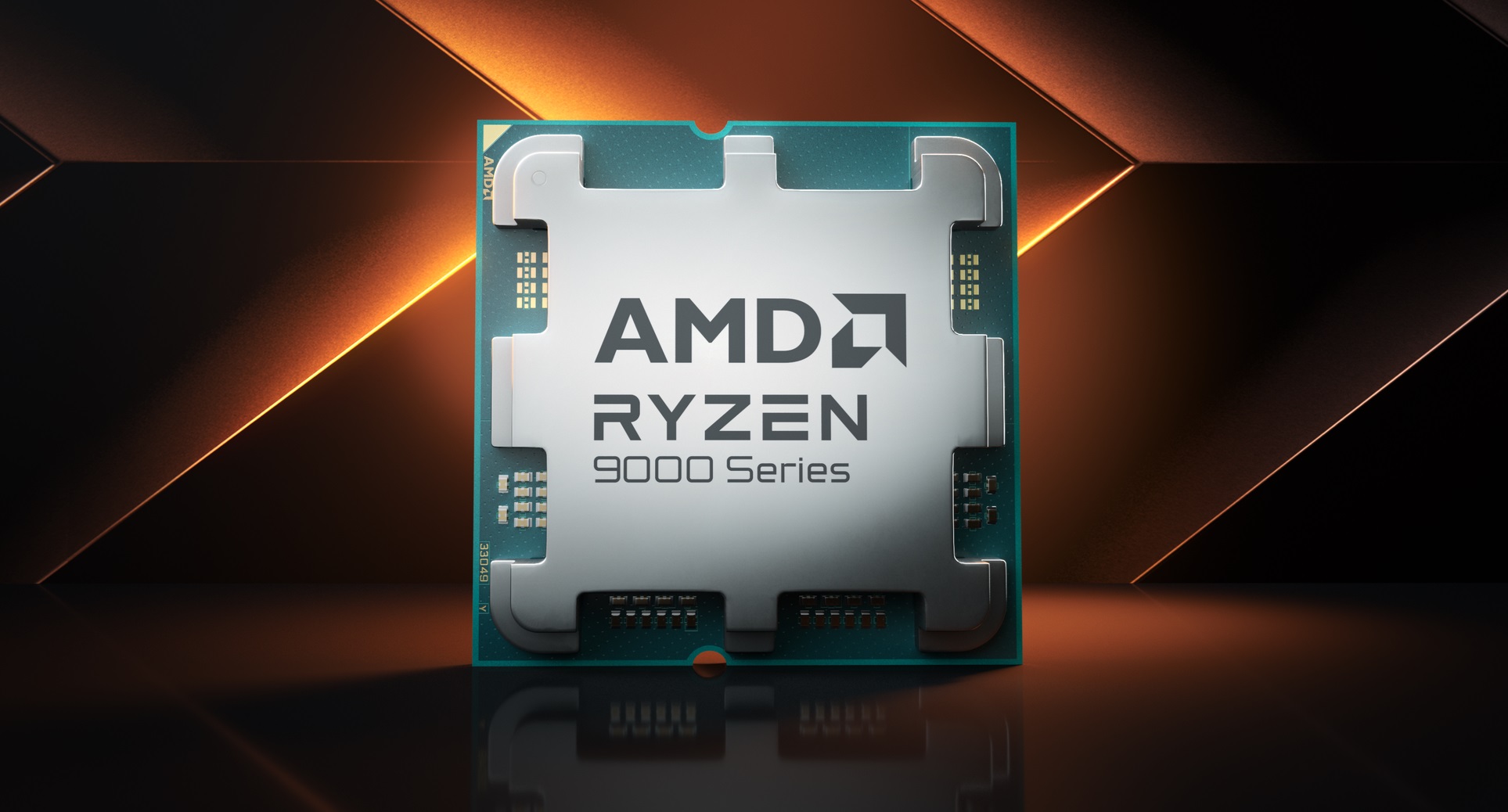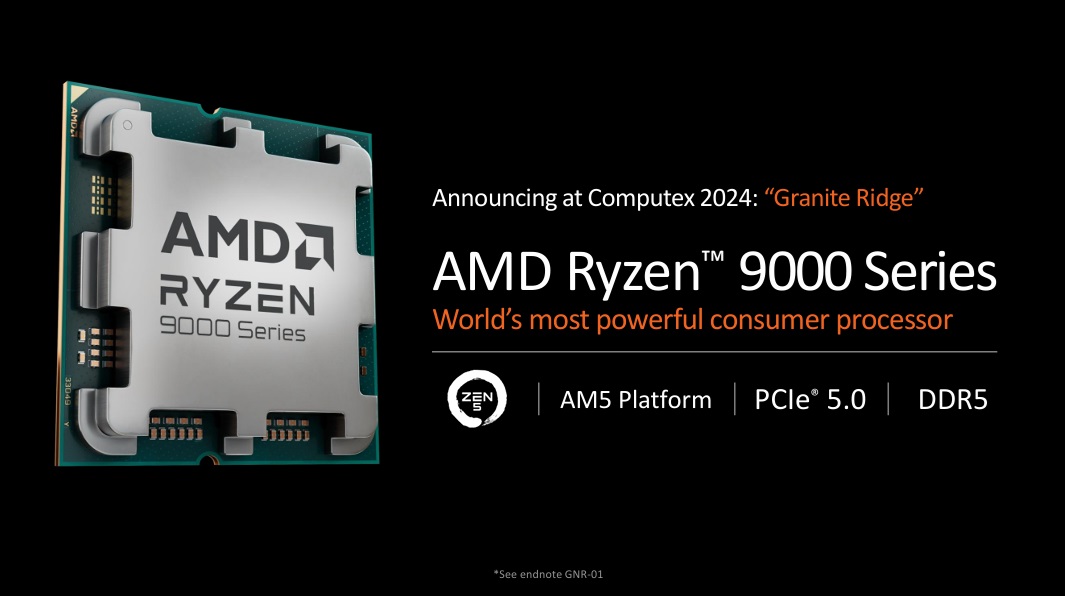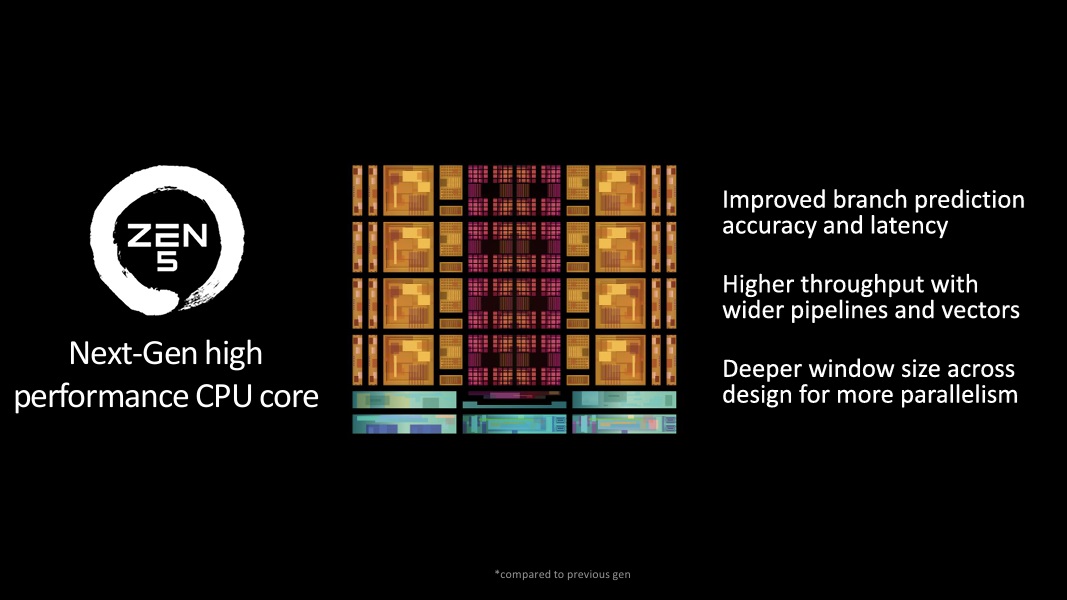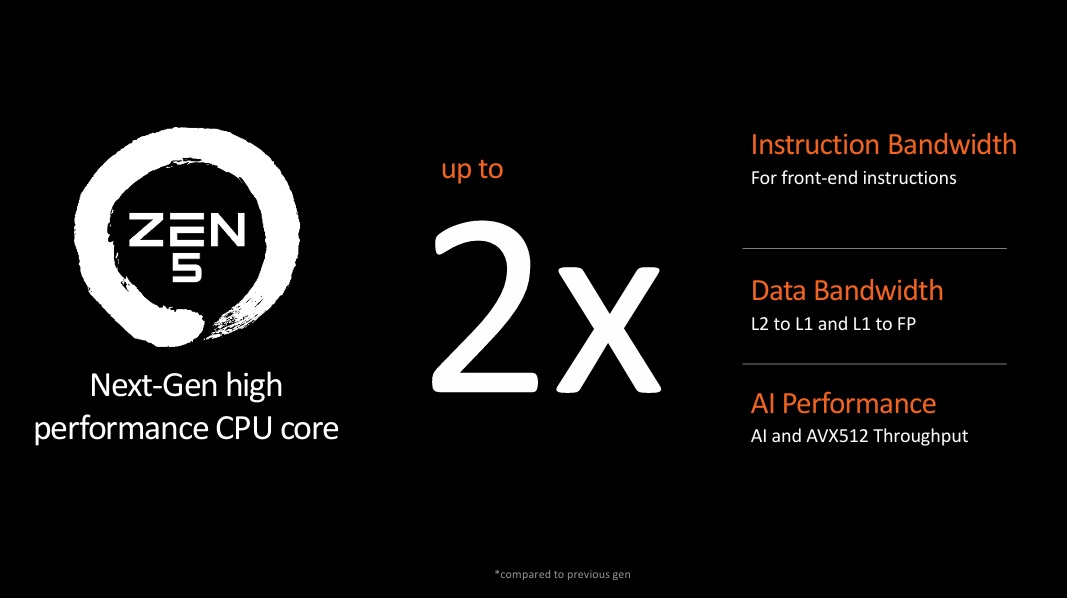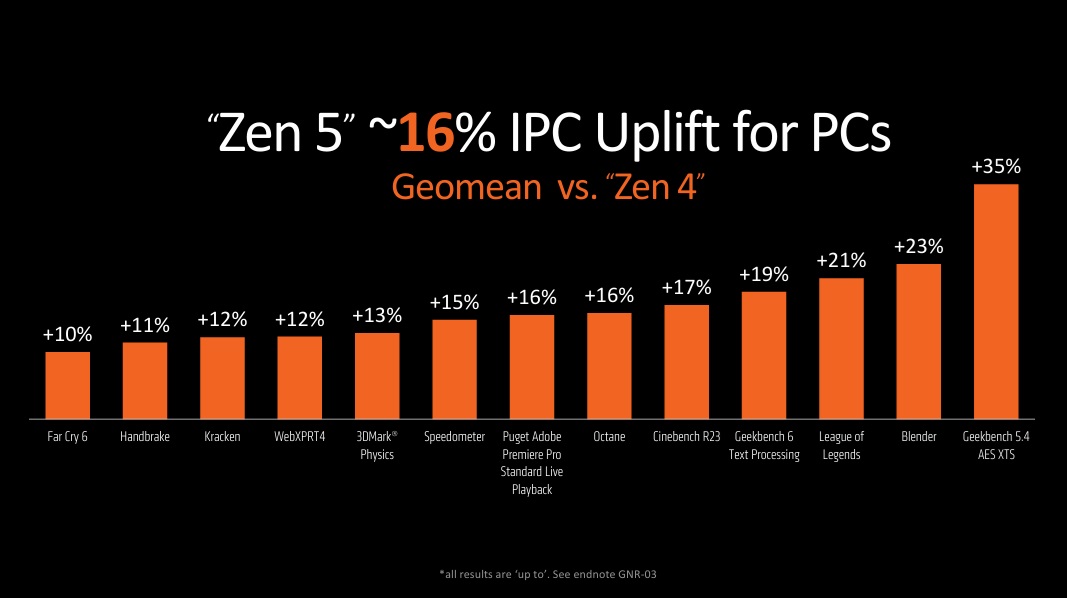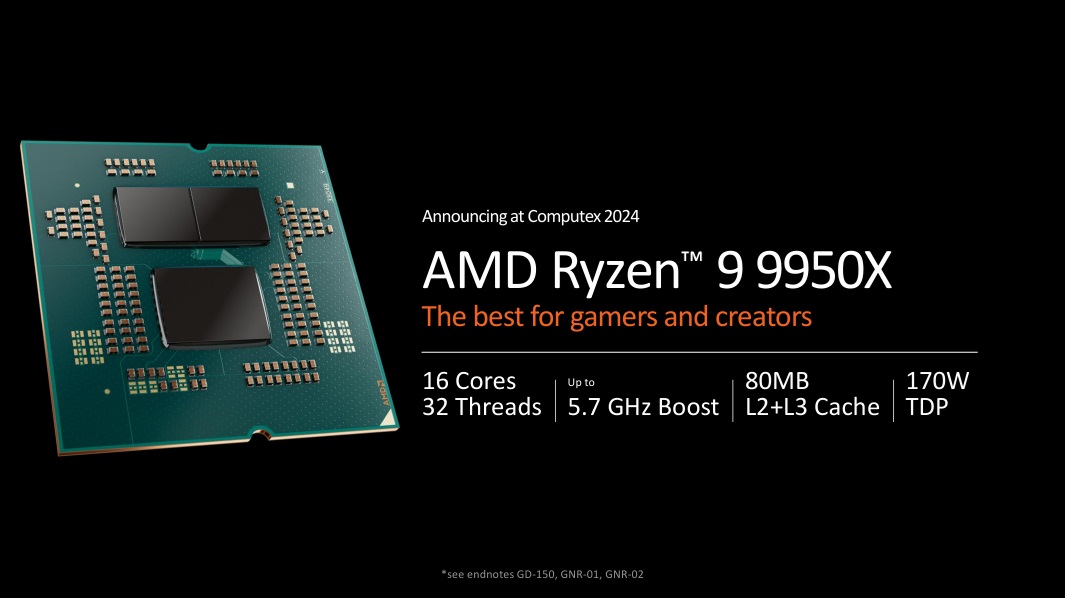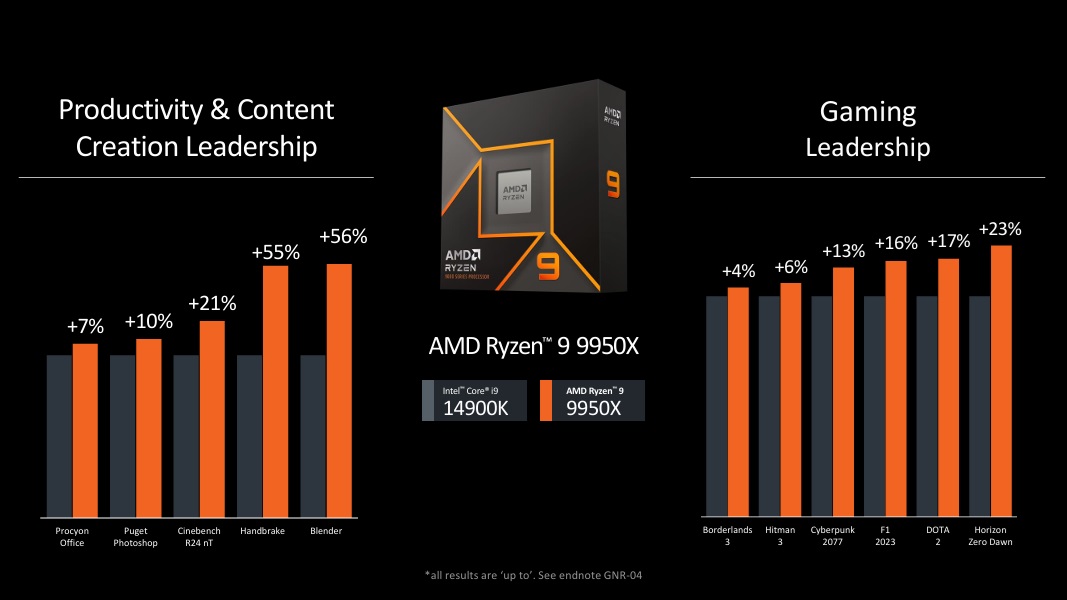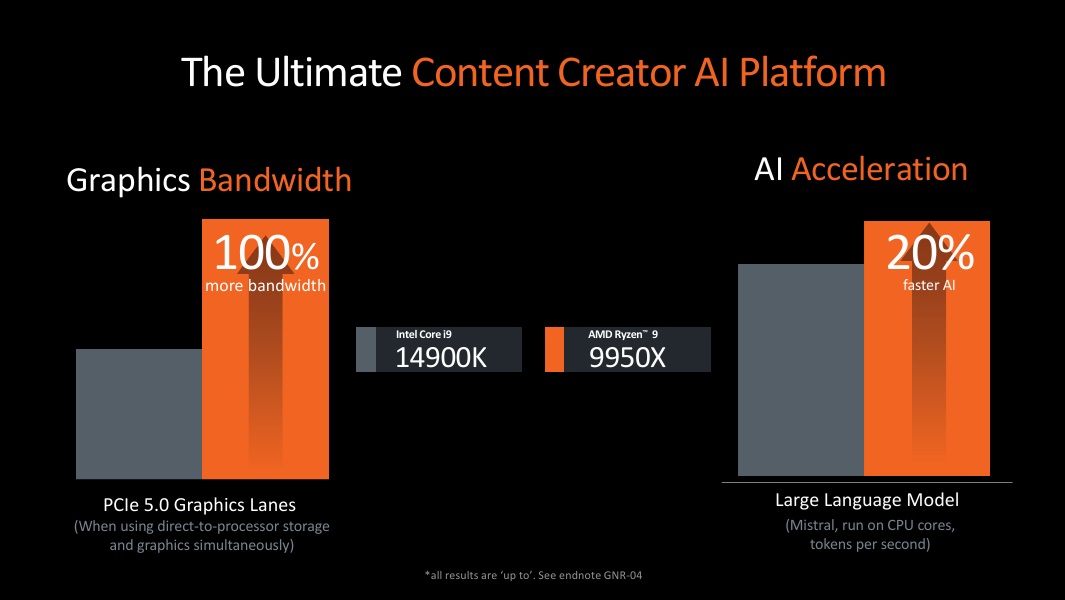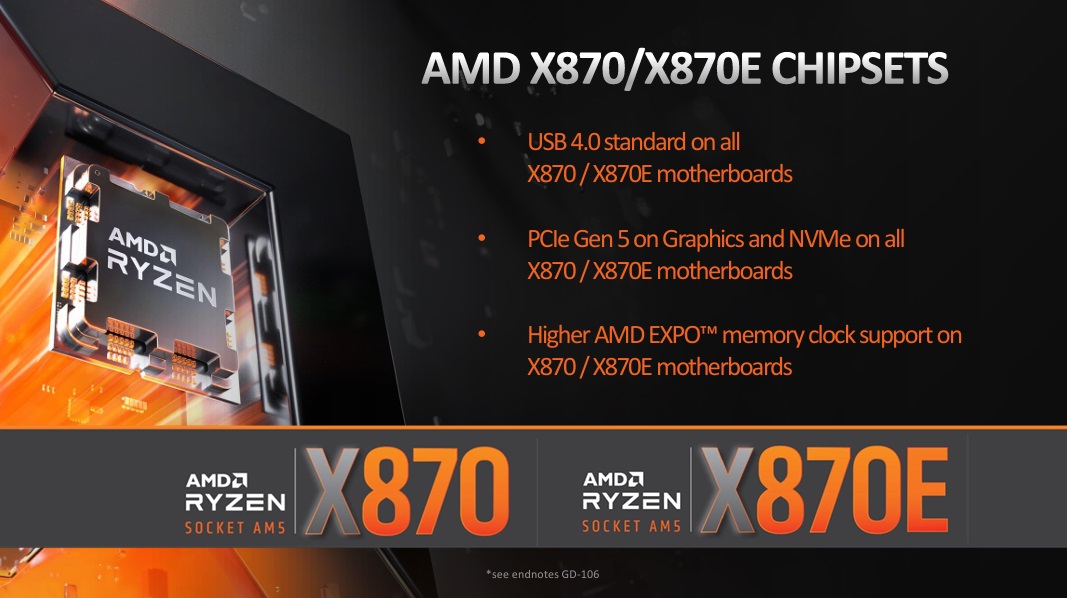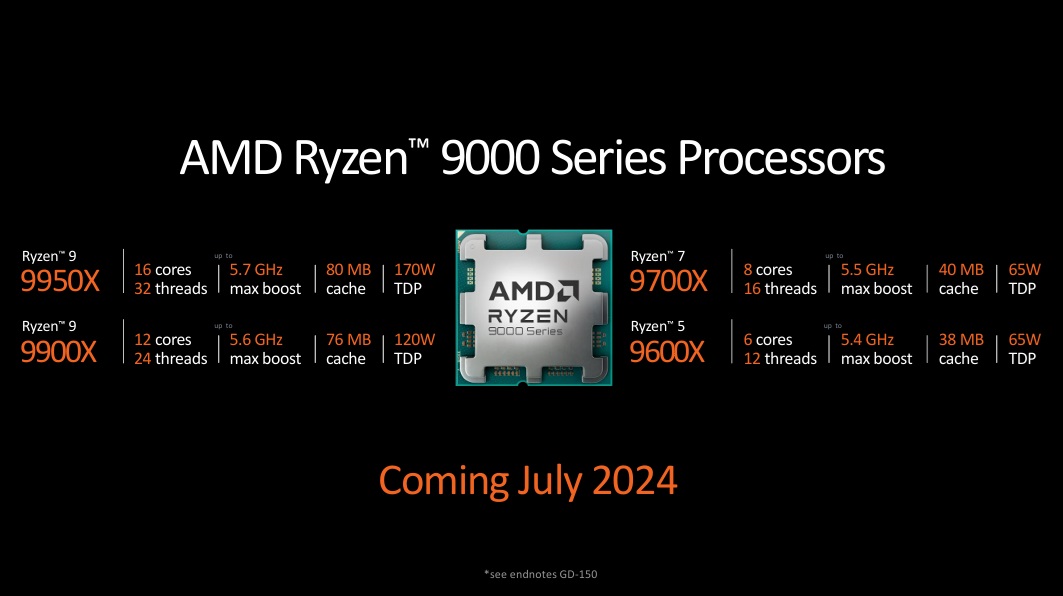AMD launches their Ryzen 9000 series of Zen 5 CPUs at Computex 2024
AMD launches Zen 5 with their Ryzen 9000 series of desktop processors
This July, AMD will be releasing their next generation of Ryzen desktop processors. With it will come new Zen 5 CPU cores and Ryzen 9000 series branding. With this launch, AMD claims to be launching the “world’s most powerful consumer processor” to date. However, that doesn’t mean that AMD will be pushing TDPs higher and power draw beyond reasonable limits.
Zen 5 – AMD’s next-gen high performance CPU core
AMD’s Ryzen 9000 series of processors will launch with Zen 5 CPU cores. Like all new CPU core designs, AMD has enhanced their new Zen 5 cores with a variety of architectural improvements. AMD gave us a short overview of their new architecture at Computex 2024. However, it was clear to us that more details will be revealed at a later date.
For starters, Zen 5 will include an improved branch predictor that is both more accurate and less latent. This means that it will deliver results faster, and it is correct more often. Those changes result in a CPU that is faster and more responsive. AMD has also created Zen 5 to deliver increased throughput with wider pipelines and vectors. Zen 5’s design was also made to increase parallelism, suggesting that inter-core workloads will see boosted performance.
AMD has made a bold claim that several aspects of Zen 5’s design can deliver an “up to 2x” boost in specific areas of CPU performance. This includes increase instruction bandwidth, more data bandwidth for lower level caches, and boosted AI performance. This means that some specific workloads will be much faster with AMD’s new Zen 5 CPU cores.
What are Zen 5’s IPC gains?
With Zen 5, AMD has claimed IPC gains of 16%. This result was taken from a Geoman of the results below. For the below workloads, AMD has deliver performance gains of between 10% and 35%. For typical workloads, Zen 5 CPU users should expect performance gains within this range.
AMD claims that these IPC tests were conducted with a X670E with CPUs running at a fixed speed of 4 GHz with DDR5-6000 memory and a Radeon RX 7900 XTX GPU. Currently, it is unknown if AMD’s Zen 5 CPUs will support faster DDR5 memory speeds than Zen 4. If they do, they could deliver higher performance levels in memory-limited workloads when used with faster DRAM.
The Ryzen 9000 series Zen 5 Flagship – Meet the Ryzen 9 9950X
AMD’s Ryzen 9000 series flagship is the 16-core Ryzen 9 9950X. On paper, this CPU looks a lot like AMD’s Ryzen 9 7950X, offering users the same core count, the same TDP, boost clock speeds, and L2/L3 cache sizes. With the Ryzen 9000 series, Zen 5 will be what delivers AMD’s generational performance gains.
When compared to Intel’s i9-14900K, AMD are claiming leadership in both gaming and productivity workloads. Even without 3D V-Cache, AMD are claiming a performance lead of up to 23% in games. In productivity workloads, AMD claims up to 56% performance leadership, despite offering users fewer CPU cores.
One downside of Intel’s current generation motherboard platforms is its relative lack of PCIe 5.0 support. Intel’s LGA1700 platform can only support up to 16 PCIe lanes, which means that there isn’t enough PCIe lanes for both PCIe 5.0 storage and PCIe 5.0 graphics. When using both PCIe 5.0 storage and graphics, Intel’s LGA1700 platforms can only use eight PCIe 5.0 lanes for connected GPUs, which is why AMD claims to have 100% more bandwidth.
With the slide below, AMD is claiming that AM5 is a stronger platform for creators. AMD has told us that PCIe 5.0 graphics is just around the corner, which means that creators may want PCIe 5.0 motherboards to take full advantage of it.
New motherboard chipsets
At Computex 2024, AMD has revealed their X870 and X870E motherboard chipsets. Both will require PCIe 5.0 connectivity for GPUs and NVMe storage. Both will also feature USB 4.0 support as standard. Additionally, AMD has claimed that their new motherboards will support “higher AMD EXPO” memory speeds. This suggests that AMD’s Ryzen 9000 series will support faster memory than their last-generation counterparts.
AMD’s Ryzen 9000 series Zen 5 CPU lineup
In July, AMD will be releasing four new Ryzen 9000 series processors. This will include the 16-core Ryzen 9 9950X, the 12-core Ryzen 9 9900X, the 8-core Ryzen 7 9700X, and the 6-core Ryzen 5 9600X.
It’s worth noting that all of the CPUs below boast a significantly lower TDPs than their last-generation counterparts, with the 16-core Ryzen 9 9950X being the only exception. With this launch, AMD has made it clear that they do not need more power to deliver more performance. This is thanks to their architectural enhancements with Zen 5, and their use of 4nm lithography.
Ahead of its launch in July, AMD plans to release more detailed information about their Ryzen 9000 series of desktop processors.
You can join the discussion on AMD’s Ryzen 9000 series processors on the OC3D Forums.



